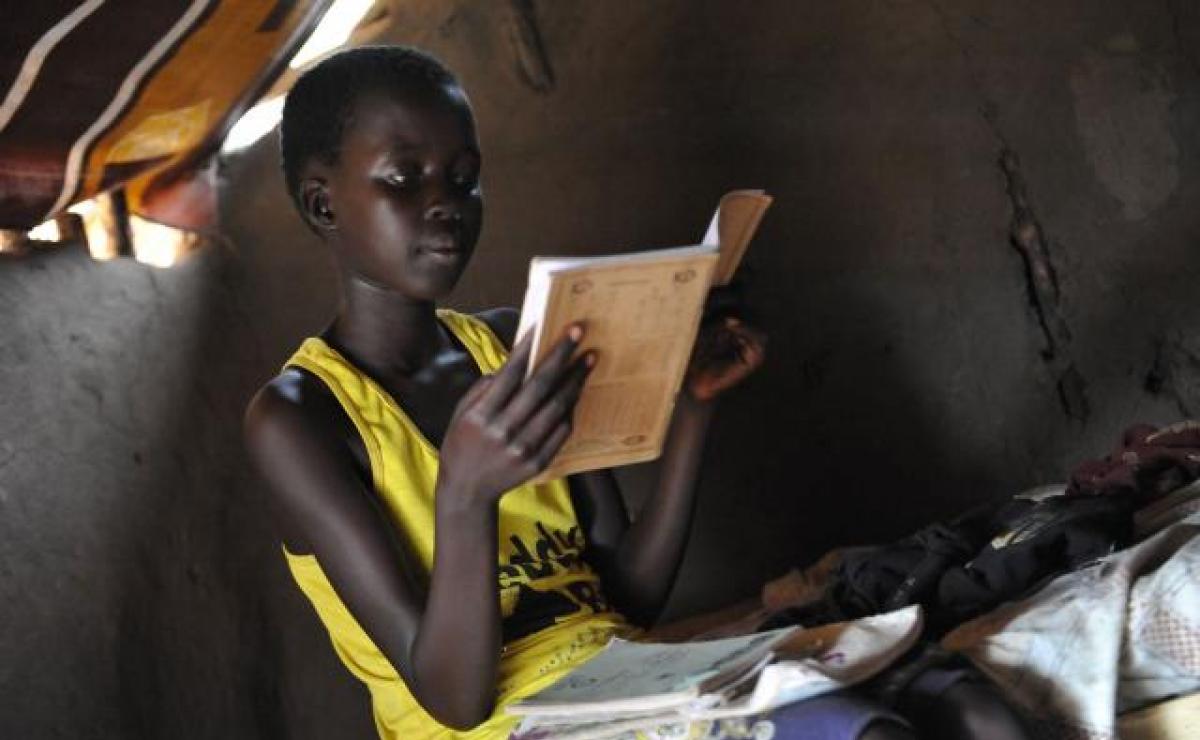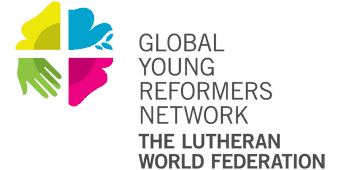An issue of dignity

Improved sanitation to keep female students in school in Uganda
(LWI) - One of every three girls in Uganda misses up to a week of school each month due to a lack of sanitary pads. LWF is working to reduce the stigma of menstruation and to support girls with proper hygiene materials.
”The monthly red tomato is here…” is the chant of boys at Belle primary school in Palorinya refugee settlement, Uganda, when they spot menstrual blood stains on a girls’ school uniform. This has become an embarrassing and stigmatizing monthly experience for many girls, Peace Julius Juru, a student in the sixth grade of primary school, says.
“It recently happened to my friend in class, a boy noticed the stains and started chanting ‘the monthly red tomato…,’” she recalls. “He was joined by the rest of the boys, they laughed at her. In tears, she ran out of class and did not return to school for a couple of days.”
Four days every month
Mary Grace Gala, the headmistress of Belle primary school, has observed incidents like these many times. 2,500 girls are enrolled in her school, the majority of them South Sudanese refugees. Many miss classes for at least three days every month because of their menstrual periods, a lack of sanitary items and the fear of “the bleeding shame”.
Research by the organization “Build Africa” indicates that 29.7 percent of the adolescent girls in Uganda miss a minimum of four days per cycle during the 80 days allocated to a school term, and 24.3 percent of the female students said they had been stigmatized, so they had decided to stay at home until the end of the cycle.
Sanitary napkins cost more than many girls can afford. Consequently, the female students stay at home and miss classes every month. Photos: LWF Uganda
The trend threatens to reverse the success of increased school enrollment, as well as girl’s literacy levels, thus endangering the country’s progress on achieving the sustainable development goals (SDG) such as quality education, no poverty, gender equality, decent work and economic growth.
Tattered clothes for makeshift protection
Sanitary pads in Uganda cost about 2,000 Ugandan Shilling (UGX) - much more than what the majority of the refugee families can afford. The majority of the girls in Uganda’s settlements opt for tattered clothes instead, an uncomfortable and unreliable alternative, as Juan Betty Tisa, another student at Belle primary, explains:
“I wrap a sweater around my backside whenever I am going to stand because I can never be sure that the rags haven’t leaked,” she says, adding that she usually stays home on the first days of her cycle because this is not enough.
The only affordable alternative are reusable sanitary materials made of old clothing. Photos: LWF Uganda
Other students are so concerned about being stigmatized that they find it hard to concentrate in class. Attending school on such days is as useful as staying home, says Winny George Menahal, a pupil at Morobi primary school in Palorinya. “My confidence vanishes in thin air and I am filled with unease. I hardly hear what the teacher is saying.”
Making the “bleeding shame” history
To overcome the stigma for menstruating girls and to prevent female students from missing classes, the Lutheran World Federation (LWF) in partnership with the International Organization for Migration (IOM) provides free sanitary pads to girls in Palorinya settlement’s primary schools, and has started training women and girls on how to make reusable pads. Part of the campaign is also education of boys and girls about menstruation.
An LWF case worker shows a student how to sew reusable pads. Photos: LWF Uganda
“I received a free package from LWF in August,” said Juru. “I need one like these every month. They are comfortable, and I don’t have to fear stains and shaming,” her fellow student Menahal added.
Shyne Nyamatte, an LWF project officer, says that education on menstruation among boys and girls is geared towards creating behavioral change and preventing menstrual stigma by breaking myths and taboos attached to it. “We want teenagers to discuss menses openly and comfortably so that girls can experience menstruation with confidence, not shame.”
Shyne Nyamatte, LWF project officer, shows the solution to girls missing classes during their period. Photos: LWF Uganda
She also wants to make sure girls are not missing out on education. “With good education comes brighter futures that will help the world to attain the 1st, 4th, 5th and 8th SDGs by 2030,” said Nyamatte. “Besides, access to sanitary pads is a health issue and an issue of dignity for girls,”
Nyamatte appeals to the government of Uganda to include sanitary pads as a basic need in resource allocation to refugees, or to support training for students to make safe reusable sanitary materials.
The project is funded by the International Organization for Migration (IOM).
Text: LWF/ S. Nalubega
